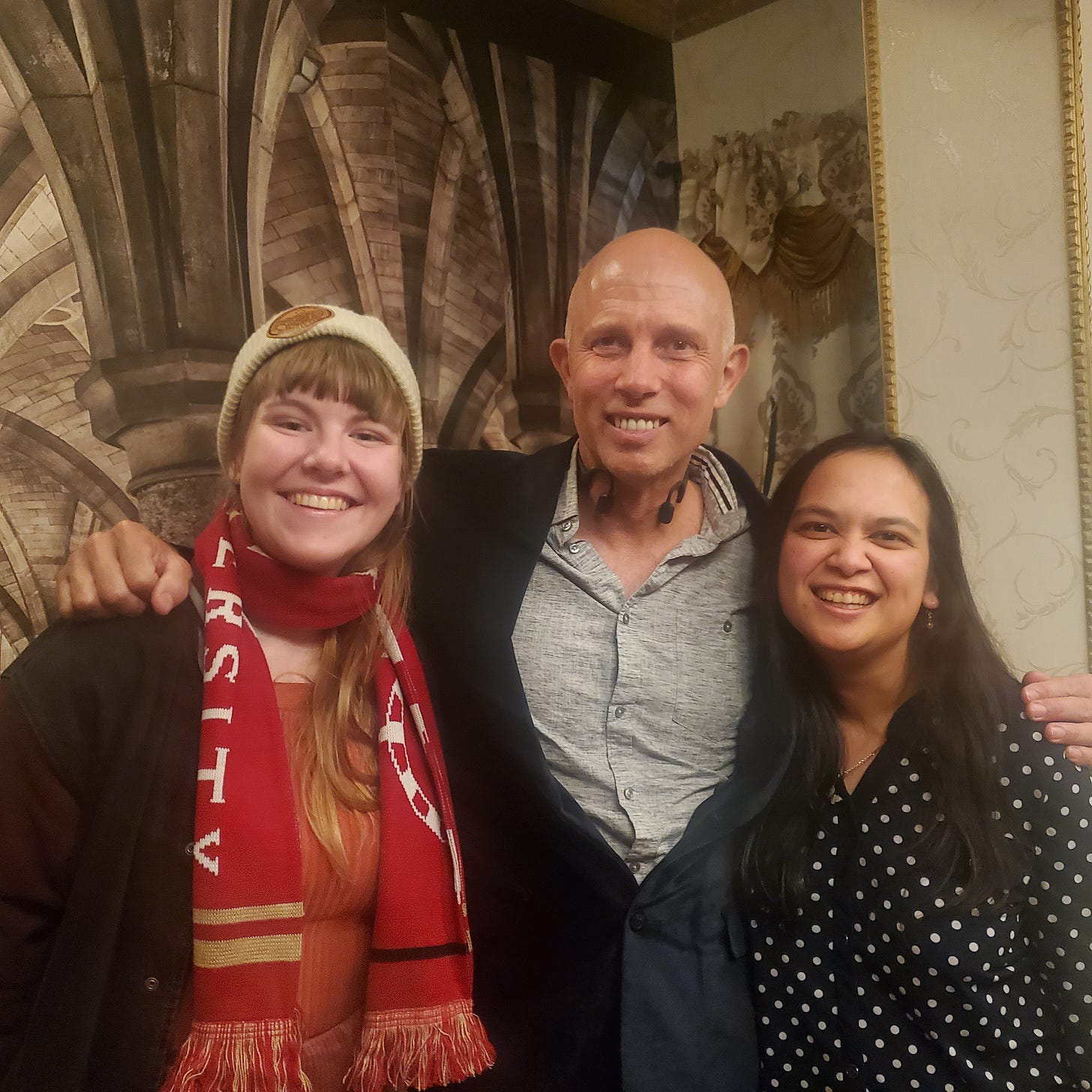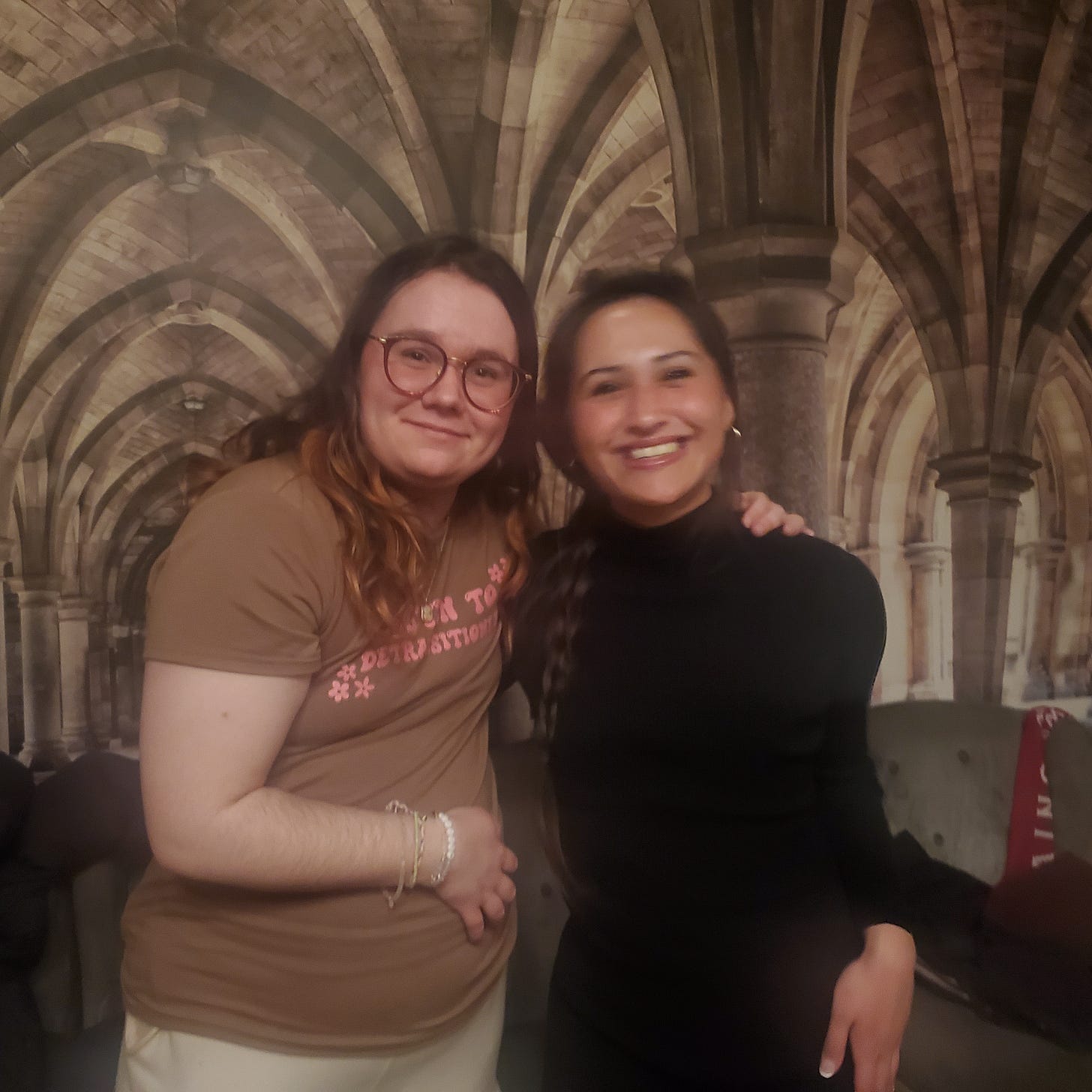Skirmetti vs. US (and the World): The Supreme Court, Transgender Rights, and the 14th Amendment
Part 1
My Supreme Court Experience
I wrote this in a state of fatigue. I stayed up for about 48 hours to see the US Supreme Court case -- Skirmetti vs. US. This case is about the protection of kids from the consequences of decisions that they can’t fully understand. Several organizations, detransitioners, lawyers, physicians, public officials, and notable figures like Jordan Peterson signed on to this Amicus. It can be viewed here. I wrote much of the "I B. Healthcare is inherently discriminatory for good medical reasons."
At the airport, Diana Lutfi, an amazing human being who worked tirelessly on the Amicus Brief for this case. Diana picked me up, and then a young woman who had detransitioned named Elle Palmer. Elle entered the car and greeted us, saying “hello” and that she’d had a long flight from Seattle and was tired from her trip. Her voice had already been irreversibly altered by testosterone.
Detransitioner Elle Palmer
Elle spoke her story with confidence and was not afraid to share details. She said that it began with a severe bout of depression when she was 14 years old, which led her to identify as non-binary at age 15. Then, a year later, she identified as a boy and informed her parents. Her parents initially resisted her requests for gender-affirming care, and they even sought therapy with a psychologist who advised her to go through gender-affirmation therapy.
She described her parents as “caved in and allowed the testosterone therapy.” She took testosterone until the age of 21, after which she detransitioned and happy she did so. She said that she grew up with an alcoholic father, and she felt like she needed to be masculine to stand up to him at times. She expressed sadness that her parents didn’t resist more her calls to be transgender, but she also recalls they were tough times. Her mannerisms were feminine, that of a young woman; she was friendly and interesting. She mentioned that all it took was one month for her to detransition when she moved out of her parents’ house and went to college on her own. I am thinking to myself, “Whaaaat????? Is that easy? One month?” All along, all she needed was a change in environment. Even she admitted this. Now, she’s on the path to raising awareness about detransitioners. She has over thirty thousand subscribers on her YouTube channel and millions of views. Still, she’s currently in between jobs and planning to finish college. She boasts that she even got fired from her old job because she said that she supports JK Rowling.
Meeting at the Bistro
Upon arriving in DC, I attended an event at a very nice Bistro, where I met several people involved in this effort. I spoke with Michigan State Senator Lana Theis, who told me her story of how she got into politics. Her story sounded like how Kentucky Senator Thomas Massie got into politics, fighting unfair taxes in her town of Michigan. Lana is a Republican state senator representing Michigan's 22nd Senate District. She assumed office on January 1, 2019, and her current term ends on January 1, 2027.
I also met Wyoming State Representative Sarah Penn for House District 33. She lives in rural Wyoming and is a nurse practitioner who has worked in the emergency department. She has been involved in debates over bills aimed at protecting children from explicit content and enhancing government transparency. Her husband Nate accompanied her, and they are working hard to battle the transgender movement taking over their state.
From Transition to Motherhood: Prisha Mosely
Then, I met Prisha Mosley who recently gave birth to a healthy boy following her detransition. Her story offers hope to those girls who’ve taken long-term testosterone. Prisha said she was surprised at getting pregnant and thankful her baby was healthy. She also said that her pregnancy has brought up a range of emotions and doubts. For example, she was scheduled for a C-section, but she still didn’t trust a doctor with a scalpel. She said, “I’m trying to reframe it. I am not removing a body part like my breasts, which are gone forever. I’m removing a baby.” She also mentioned her difficulties in experiencing breast pain associated with producing milk for her baby. She now has pain due to the lactation from the remaining milk ducts after surgeons removed her healthy breasts at the age of 18. She described these as “painful rocks” under her chest. She also described how doctors weren’t willing to help her with her pain. For those unaware, the goal of a mastectomy for transgender purposes involves the aggressive removal of all breast tissue down to the chest wall. Surgeons aggressively painfully scrape the breast tissue with a tool called a “rongeur.” In fact, the anesthetics required for these procedures approaches that of open-heart surgery, not cosmetic breast implants. This New York Post article tells her story well.
It’s Through The Elderly That We Carry our Wisdom
Then I spoke to a physician, Prisha Mosely’s grandfather, Dr. Henry Mosly. Dr. Moseley received his medical degree from Johns Hopkins University in the 1950s and then practiced around the globe. He recounted stories from an era when hospitals maintained segregated wards, much like the segregation at drinking fountains and buses. He practiced public health medicine at a time when cholera was still a significant health issue. I asked him if he ever remembered patients going in for transgender surgery. He said, “Never.” Instead, he remembered the popularity of lobotomies and that family physicians recommended them for depressed women. He looks back at that practice and makes many parallels with lobotomies and transgender surgery. He remembers the enthusiasm for the procedure even he was skeptical of lobotomies at the time, but he says that their popularity and the money doctors made from them offset any concerns he raised. He mentioned that he tried to help Prisha from transitioning, but her will was too strong. But he waited patiently and supported her through every step of the way and is her biggest fan.
Chloe Cole and Exploring the Self
Then, I had a long conversation with Chole Cole, probably the best-known detransitioner and is now an avid activist. I first learned about Chloe from a podcast with psychiatrist Dr. Miriam Grossman; she wrote a book titled “Lost in Trans Nation.” I also listened to the eye-opening Jordan Peterson podcast with Chloe. It’s evident that she had her breasts removed, and she mentioned that she’s at peace with it. She’s in a place where she likens her situation to a Biblical verse – 1 Corinthians 7:19: “Circumcision is nothing, and uncircumcision is nothing. Keeping God’s commands is what counts.”
We spoke about how diet can treat mental disease. I thought it strange that Chloe had never heard about changing her diet to modify or treat depression, nor did any of her therapists broach the subject. There’s now a wealth of information, mainly about eating non-processed foods and lowering carbohydrate intake. I spoke about Chris Palmer and Lori Calabrese’s work on this topic.
We also discussed ketamine, suicide and depression. She’s never tried ketamine, but she’s experienced other psychedelics. I highlighted for her that during a psychedelic experience where ego and time dissolve, as you move farther from your body, the notion of gender fades, and this can be powerful for someone battling gender dysphoria. When you are deep into the experience, the thought of gender drops out of the picture, leaving only the notion of “I.” To grasp this better, imagine viewing yourself from an outside perspective, from another room, for example. “I” represent who you are. It’s incorrect to think of “I” as being sad or happy; instead, it’s something that is capable of being happy or sad. Needless to say, we had a deep conversation, and she’s a beautiful young woman with tons of potential and doing great work.
A special thanks to Diana Lutfi JD who worked tirelessly to make all this happen and wrote the Amicus Brief. And to Terry Fowler JD, who is a former nurse, ethicist, disability rights advocate, and healthcare administrator. He also volunteered so much of his time and resources in taking this on. He is a published author and a prolific writer.







